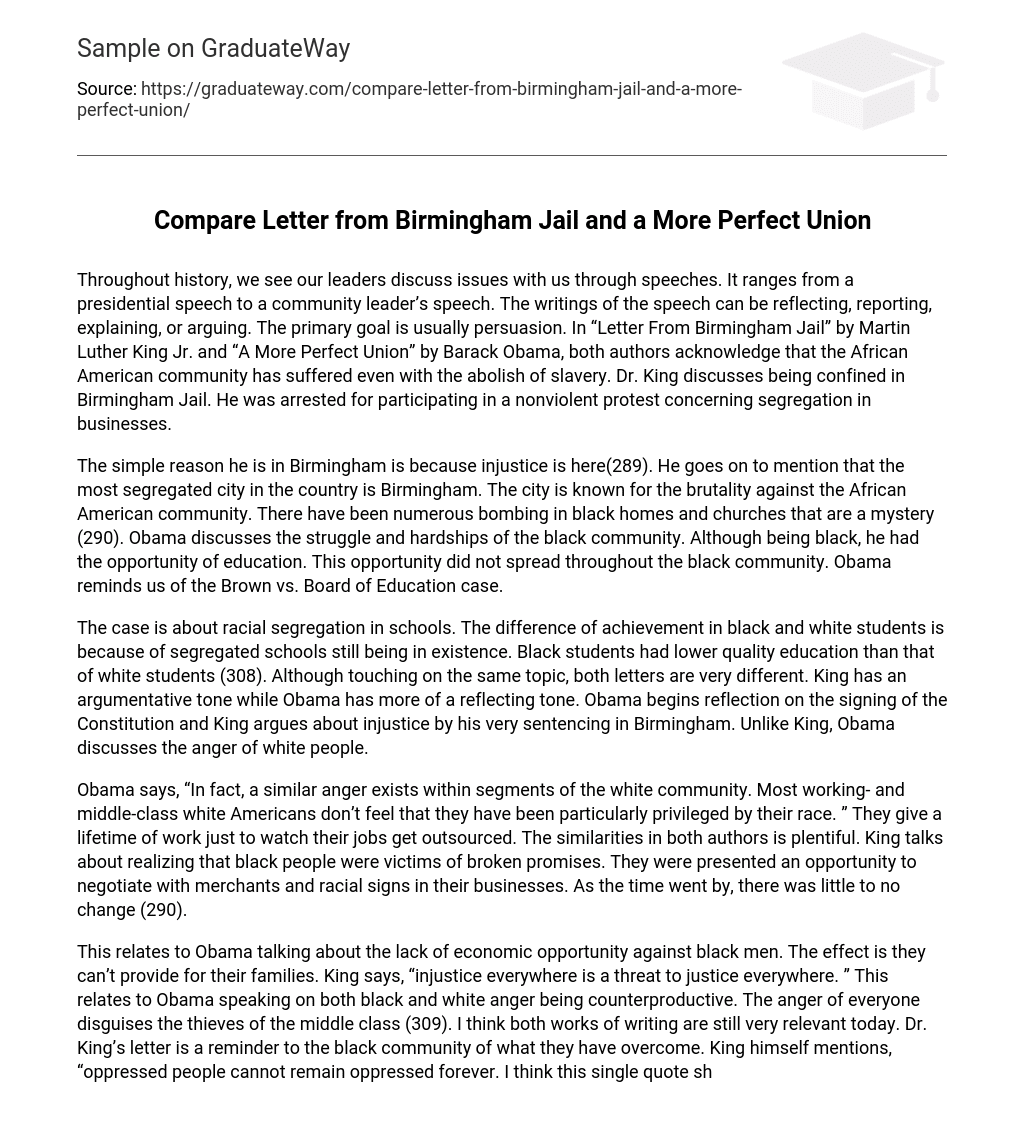Throughout history, leaders have communicated with us through speeches, ranging from presidential addresses to community leaders’ talks. These speeches can reflect, report, explain or argue on various issues. The primary goal is usually persuasion. In Letter From Birmingham Jail” by Martin Luther King Jr., and “A More Perfect Union” by Barack Obama, both authors acknowledge that the African American community has suffered even after the abolition of slavery. Dr. King discusses being confined in Birmingham Jail after participating in a nonviolent protest against segregation in businesses.
The simple reason he is in Birmingham is because injustice is here (289). He goes on to mention that Birmingham is the most segregated city in the country, known for its brutality against the African American community. There have been numerous bombings of black homes and churches that remain a mystery (290). Obama discusses the struggles and hardships faced by the black community. Despite being black himself, he had access to education, which was not widely available to other members of his community. Obama reminds us of the Brown vs. Board of Education case.
The case is about racial segregation in schools. The difference in achievement between black and white students is due to the continued existence of segregated schools. Black students received lower quality education than white students (308). Although both letters address the same topic, they have distinct tones. King’s letter has an argumentative tone, while Obama’s has a reflective one. Obama reflects on the signing of the Constitution, whereas King argues against injustice by citing his sentencing in Birmingham. Unlike King, Obama discusses the anger of white people.
Obama stated that In fact, a similar anger exists within segments of the white community. Most working- and middle-class white Americans don’t feel that they have been particularly privileged by their race.” These individuals work hard for a lifetime only to see their jobs outsourced. The similarities between both authors are abundant. King discusses the realization that black people were victims of broken promises, presented with an opportunity to negotiate with merchants and remove racial signs from businesses. However, as time passed, there was little to no change (290).
This relates to Obama’s discussion about the lack of economic opportunities for black men, which results in their inability to provide for their families. Dr. King’s famous quote, injustice anywhere is a threat to justice everywhere,” is relevant to this issue. Obama also spoke about how both black and white anger can be counterproductive and how it disguises the theft of the middle class (309). Both works of writing remain significant today. Dr. King’s letter serves as a reminder of what the black community has overcome, and he emphasizes that oppressed people cannot remain oppressed forever. This quote should motivate individuals to strive for success.
Obama’s writing is also a source of motivation for success. He quotes William Faulkner, The past isn’t dead and buried. In fact, it isn’t even the past.” This means that history does not need to repeat itself and reminders of injustice are unnecessary (307). Despite the end of slavery, the African American community has continued to suffer. Segregation has limited their opportunities, forcing them to endure hardship in order to achieve their goals. Leaders such as Martin Luther King Jr. and Barack Obama advocate for equality among all members of our nation.





